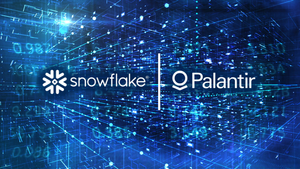
MENLO PARK, CA – October 22, 2025 – Meta Platforms (NASDAQ: META) today announced a substantial restructuring within its Artificial Intelligence (AI) division, eliminating approximately 600 positions. The move, effective immediately, signals a strategic pivot for the tech giant, as it aims to streamline operations and intensely focus on its ambitious "superintelligence" initiatives, specifically within its nascent TBD Lab.
The layoffs impact various segments of Meta's long-standing AI research and development efforts, including the renowned Facebook Artificial Intelligence Research (FAIR) unit, several product-related AI teams, and core AI infrastructure divisions. This decisive action, communicated internally by Chief AI Officer Alexandr Wang, underscores a desire for increased agility and efficiency, even as Meta continues to make aggressive investments in the broader AI landscape.
A Sharper Focus: From Broad Research to AGI Acceleration
The 600 job cuts represent a significant shift in Meta's approach to AI, moving away from a more diffuse, academic research model towards a concentrated effort on commercial Artificial General Intelligence (AGI) development. While units like FAIR have historically been at the forefront of fundamental AI research, the current restructuring suggests a re-prioritization towards projects with more immediate or direct pathways to "superintelligence."
Crucially, Meta's newly established TBD Lab unit, which is tasked with building next-generation large language models and developing advanced AGI capabilities, remains entirely unaffected by these layoffs and is, in fact, continuing to expand its hiring. This dichotomy highlights Meta's dual strategy: prune areas deemed less aligned with its accelerated AGI timeline while simultaneously pouring resources into its most ambitious AI endeavors. Chief AI Officer Wang emphasized that the reductions aim to create a more agile operation, reducing bureaucracy and enabling faster decision-making by fostering a leaner, more impactful workforce. Insiders suggest that CEO Mark Zuckerberg's reported frustration with the pace of visible breakthroughs and commercial returns from existing AI initiatives played a role in this strategic re-evaluation.
This approach contrasts sharply with previous industry trends where large tech companies often maintained broad AI research portfolios. Meta's current move indicates a departure from this diversified model, opting instead for a laser-focused, high-stakes gamble on achieving "superintelligence." The immediate reaction from the market was relatively subdued, with Meta's stock experiencing only a slight dip of 0.6% on the news, a less significant decline compared to broader market indices. However, the cuts have sparked discussions within the AI community, raising questions about the balance between fundamental research and commercialization, especially given Meta's recent substantial investments in AI, including a reported $14.3 billion into Scale AI and aggressive talent acquisition.
Competitive Implications and Industry Ripples
Meta's strategic pivot carries significant competitive implications for the broader AI industry. By shedding 600 positions and intensely focusing on its TBD Lab for "superintelligence," Meta is signaling a more aggressive, yet potentially narrower, competitive stance against rivals like OpenAI, Google (NASDAQ: GOOGL), and Microsoft (NASDAQ: MSFT). Companies primarily focused on niche AI applications or those reliant on broad-spectrum AI research might find themselves in a more challenging environment if this trend towards hyper-specialization continues.
The immediate beneficiaries of this development could be other tech giants or well-funded AI startups looking to acquire top-tier talent. The displaced employees from FAIR and other Meta AI divisions represent a highly skilled pool of researchers and engineers who will undoubtedly be sought after by companies eager to bolster their own AI capabilities. This could lead to a significant talent migration, potentially strengthening competitors or fueling new ventures in the AI ecosystem. Furthermore, this move could disrupt existing AI product roadmaps within Meta, as resources are reallocated, potentially delaying less critical AI-driven features in favor of core AGI development.
From a market positioning perspective, Meta is making a clear statement: its future in AI is inextricably linked to achieving "superintelligence." This strategic gamble, while potentially high-reward, also carries substantial risk. It positions Meta directly at the frontier of AI development, challenging the notion that incremental improvements across a wide array of AI applications are sufficient. The competitive landscape will undoubtedly intensify as other major players assess their own AI strategies in light of Meta's bold repositioning.
A Broader Trend in the AI Landscape
Meta's decision to cut AI jobs and re-focus its strategy is not an isolated incident but rather fits into a broader trend observed across the AI landscape: a drive towards efficiency, consolidation, and the relentless pursuit of commercially viable, transformative AI. This "year of efficiency," as CEO Mark Zuckerberg previously termed it, reflects a maturation of the AI industry, where the initial euphoria of broad exploration is giving way to a more pragmatic, results-oriented approach.
The impacts of such a move are multifaceted. On one hand, it could accelerate breakthroughs in AGI by concentrating talent and resources on a singular, ambitious goal. On the other hand, it raises concerns about the narrowing of fundamental research, potentially stifling diverse avenues of AI exploration that may not immediately align with a "superintelligence" mandate. The job cuts also highlight the inherent volatility of the tech employment market, even in high-demand fields like AI. While Meta encourages affected employees to apply for other internal roles, the sheer volume of cuts in specific areas suggests a significant reshuffling of talent.
This event draws comparisons to previous AI milestones where companies made bold, often risky, strategic shifts to gain a competitive edge. It underscores the immense pressure on tech giants to demonstrate tangible returns on their colossal AI investments, moving beyond academic papers and towards deployable, impactful technologies. The pursuit of "superintelligence" is arguably the ultimate expression of this drive, representing a potential paradigm shift far beyond current large language models.
The Road Ahead: Superintelligence and Uncharted Territory
The future developments stemming from Meta's intensified focus on "superintelligence" are poised to be transformative, yet fraught with challenges. In the near term, the industry will be closely watching for any announcements or demonstrations from the TBD Lab, expecting glimpses of the advanced capabilities that Meta believes will define the next era of AI. The continued hiring for this elite unit suggests a concerted effort to accelerate development, potentially leading to breakthroughs in areas like advanced reasoning, multimodal understanding, and even rudimentary forms of AGI within the next few years.
Potential applications on the horizon, if Meta's "superintelligence" ambitions bear fruit, could revolutionize virtually every industry. From highly sophisticated personal AI assistants that anticipate needs and execute complex tasks autonomously, to scientific discovery engines capable of solving humanity's grand challenges, the implications are vast. However, the journey is not without significant hurdles. Technical challenges in scaling AGI, ensuring its safety and alignment with human values, and addressing ethical considerations surrounding autonomous decision-making remain paramount.
Experts predict that this strategic shift will intensify the "AI arms race" among leading tech companies, pushing them to invest even more heavily in foundational AGI research. The competition for top AI talent, particularly those specializing in novel architectures and ethical AI, will likely escalate. What happens next largely depends on the TBD Lab's ability to deliver on its ambitious mandate and Meta's willingness to sustain such focused, high-cost research over the long term, even without immediate commercial returns.
A High-Stakes Bet on the Future of AI
Meta's decision to cut 600 AI jobs while simultaneously accelerating its "superintelligence" strategy marks a defining moment in the company's AI journey and the broader tech landscape. The key takeaway is a clear and unequivocal commitment from Meta to pivot from diversified AI research towards a concentrated, high-stakes bet on achieving AGI through its TBD Lab. This move signifies a belief that a leaner, more focused team can more effectively tackle the immense challenges of building truly transformative AI.
This development's significance in AI history could be profound, representing a shift from a "land grab" phase of broad AI exploration to a more targeted, resource-intensive pursuit of ultimate AI capabilities. It underscores the increasing pressure on tech giants to demonstrate not just innovation, but also commercial viability and strategic efficiency in their AI endeavors. The long-term impact will hinge on whether Meta's focused approach yields the anticipated breakthroughs and whether the company can navigate the ethical and technical complexities inherent in developing "superintelligence."
In the coming weeks and months, the industry will be watching closely for several key indicators: further insights into the TBD Lab's progress, the absorption of displaced Meta AI talent by competitors or new ventures, and any subsequent announcements from Meta regarding its AI roadmap. This aggressive repositioning by Meta could very well set a new precedent for how major tech companies approach the race to AGI, ushering in an era of hyper-focused, high-investment AI development.
This content is intended for informational purposes only and represents analysis of current AI developments.
TokenRing AI delivers enterprise-grade solutions for multi-agent AI workflow orchestration, AI-powered development tools, and seamless remote collaboration platforms.
For more information, visit https://www.tokenring.ai/.





